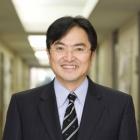In July 2014, the World Council of Churches (WCC) Central Committee adopted a statement entitled "Towards a Nuclear-free World." In the same year, on 4 August, on behalf of the world's 500 million Christians, WCC Asia president Dr Chang Sang visited Japan, and delivered this statement in person to the chief cabinet secretary of the Japanese government, Yoshihide Suga. The churches in Japan, which experienced Hiroshima and Nagasaki, were greatly encouraged by these WCC actions.
Nippon Sei Ko Kai (Anglican Church in Japan, or NSKK), at its 59th (Regular) Synod in 2012, in a resolution, “Seeking a World without Nuclear Power Plants," and again in the same year, at the "Mission Conference of NSKK, “The Dignity of Life,” clearly expressed its position on the issue of nuclear power generation. To embody this position, NSKK convened the “International Forum for a Nuclear-Free World” at Sendai Christ Church, from 28-31 May 2019. Sixty-eight participants gathered, including lay participants and clergy. We had participants from Anglican Churches of England, the United States, Korea, Taiwan, and the Philippines; members of the National Christian Council in Japan Peace and Nuclear Issues Committee; and members of the NSKK Justice and Peace Committee.
For the keynote lecture, “Messages from Germany, which has drastically shifted its energy policies,” Dr Miranda Alice Schreurs was invited. The forum adopted the statement, titled as “Affirming the Preciousness of Life, in Order that Life may be Lived – For a World Free of Nuclear Power.”
As long as nuclear power generation is operative, it continues to create dangerous radioactive waste. What is real safety? Surely, the safety necessary for the survival of all life would be to permit no further increase of hazardous waste. In addition, when one thinks about nuclear power generation, “nuclear weapons” and “nuclear power generation” are two sides of a single coin; the technology can at any time be diverted to nuclear weapons and threaten the right to live in peace. We are committed to strengthening and improving domestic and international networks for the purpose of denuclearization.
The International Reformed-Anglican Dialogue between the World Communion of Reformed Churches and the Anglican Communion met for the fifth time, from 23-30 August 2019 in Hiroshima, Japan. We, NSKK, hosted this historic bilateral ecumenical dialogue in Hiroshima. The city’s destruction by an atomic bomb during the Second World War remains the iconic image of the human capacity to reject human dignity. We were deeply moved to hear atomic bomb survivor Keiko Ogura share her experience of 6 August 1945. Together, we visited the Peace Park and the Hiroshima Peace Memorial Museum and bore witness to the devastation of the bombing. We also had a eucharist at the Anglican Church of the Resurrection, and experienced the powerful hope embodied in Hiroshima’s commitment to peace and nuclear disarmament. This experience deepened our commitment to as embodying peace-making in the church and in the world.
Incredibly, however, the Japanese government has refused to ratify the UN Treaty on the Prohibition of Nuclear Weapons. We, Japanese churches, urge our government, as the only country in the world to have experienced the wartime devastation caused by nuclear weapons, to sign and ratify the treaty as soon as possible.
This text is the fourth of a series of blog posts highlighting different reflections and experiences of those who are calling for an end to nuclear weapons. Learn more:
"75th anniversary of the nuclear attacks on Hiroshima and Nagasaki: has your country ratified the UN treaty?", by Jennifer Philpot-Nissen (15 June 2020)
"Kiritimati and the Bomb: A Tale of Two Churches", by Becky Alexis-Martin (6 July 2020)
"Recollections of an ecumenical pilgrimage to Japan, for the 70th anniversary of atomic bombing (2015)", by Bishop Heinrich Bedford-Strohm (15 July 2020)
